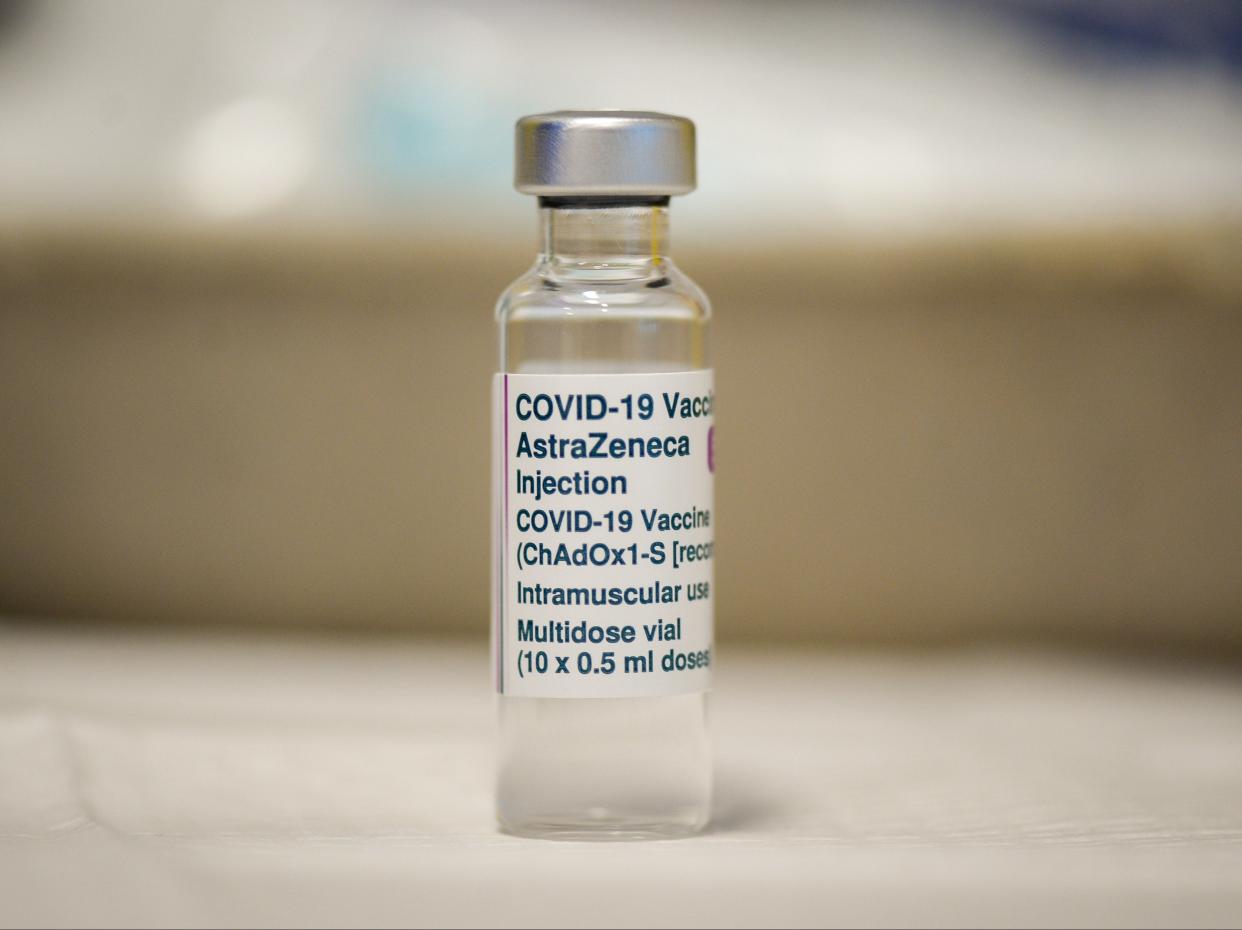UK’s ‘course correction’ over AstraZeneca vaccine is rooted in caution but carries risks

In the latest saga to engulf the Oxford/AstraZeneca vaccine, the revelation that this life-saving tool appears to be responsible for the rare blood disorders reported in some recipients of the jab will no doubt have sparked concern among many.
At this stage, the evidence is faint, rather than conclusive. There is plenty of background noise to consider. Covid-19 is itself linked to blood clotting, while these incidents can occur naturally in the population.
But although the data does point to a loose link, the risk remains almost negligible. In the UK, 79 cases and 19 deaths occurred after 20 million doses of the vaccine were administered.
According to these figures, we can expect four in one million to develop a blood clot. For people in their twenties, this rises to 1 in 100,000. In contrast, 60 out of 10,000 women who take the contraceptive pill are expected to experience some form of serious blood clot.
The risk associated with the AstraZenca vaccine therefore pales into insignificance compared to the danger to life posed by Covid-19. If a million 60-year-olds catch coronavirus, around 20,000 will die - a figure that drops to roughly 1,000 for a similar sized group of 40-year-olds.
Read more:
‘Link’ between AstraZeneca vaccine and blood clots, EMA official says
AstraZeneca vaccine blood clots: What are the symptoms to look out for?
How worried should you be about possible AstraZeneca vaccine blood clot link?
Responsibility now falls on the government, health experts and public officials in communicating these details and maintaining confidence in a vaccine that has been intrinsic to guiding the UK out of its epidemic.
Any serious lose of faith in the vaccine will carry major repercussions for Britain, especially as its lockdown roadmap is dependent on a steady flow of inoculations delivered via the AstraZenca vaccine.
The decision to offer Britain’s under-thirties an alternative to the jab could swing two ways, in either assuring the nation or unsettling it.
By issuing the guidance, the Joint Committee on Vaccination and Immunisation (JCVI) has made clear it has acknowledged the issue at hand - as small as it may be - and demonstrated that the regulatory framework is doing its job in detecting these rare side effects, as it should.
With the likes of the European Medicines Agency and World Health Organisation both flagging a “possible” link between the vaccine and blood clots, while much of mainland Europe has already restricted its use among the elderly, the UK could not be seen to be running against the grain.
Britain may have led the way with its vaccine strategy from the very beginning, having repeatedly defended the AstraZeneca jab as others undermined it, but any significant break from the continent could have raised unwanted questions at home - and possibly to the detriment of the national rollout.
On the flip side, the JCVI’s recommendation will also be seen by many as a step too far, in giving weight to a dangerous narrative that has been overblown from day one. Returning to the example of the contraceptive pill, its risk of blood clots is considerably higher, yet there are no caveats to its widespread distribution.
Why, some may ask, has the JCVI opted to impose this guidance for the AstraZeneca jab? The risk of blood clots from the vaccine may be elevated among younger people, hence the decision, but even then the numbers we’re dealing with remain infinitesimal. Such an approach threatens to shake people’s faith in the vaccine, at a time when ensuring high levels of uptake is critical.
The JCVI will feel that it has been caught between a rock and a hard place, but this “course correction”, as Professor Jonathan Van-Tam put it, certainly represents a gamble that could change the whole direction of travel in the coming weeks and months.
After the latest roll of the dice, we can only wait and watch to see whether the nation continues to stand by the AstraZeneca vaccine. As for what the rest of the world does, that remains an entirely separate matter of concern.

